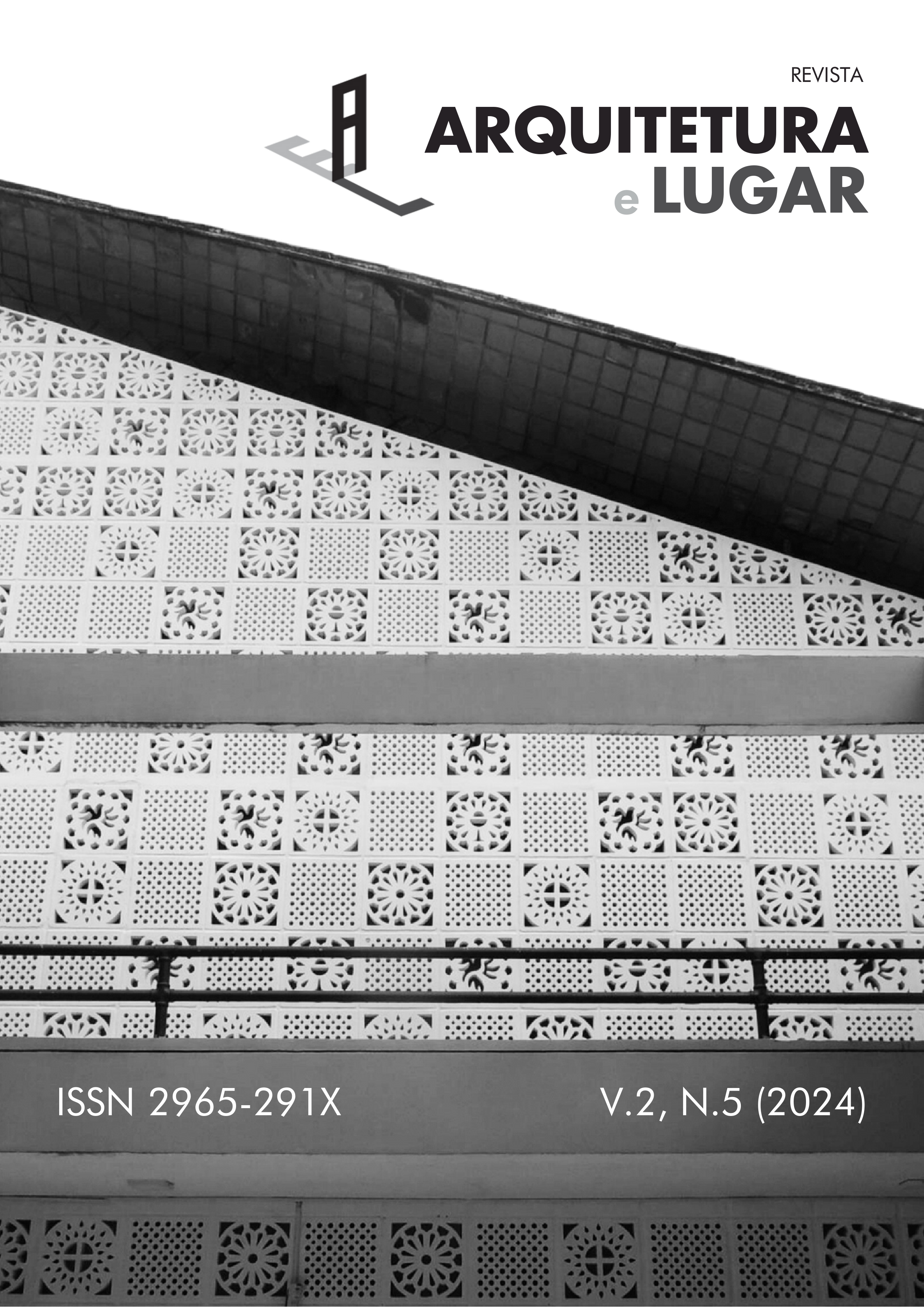A PRODUÇÃO DESIGUAL DO ESPAÇO URBANO COMO FATOR NA FORMAÇÃO DAS DIFERENTES PAISAGENS
Palavras-chave:
paisagem, espaço urbano, capitalismo, desigualResumo
A paisagem é tudo aquilo que nossa visão alcança, podendo ser natural ou cultural, dependendo da modificação que os seres humanos fizeram nela, este artigo evidencia a relação da paisagem com o contexto do local no qual está inserido, seja pelas desigualdades, infraestruturas, políticas públicas ou a falta delas. Será discutido dois bairros diferentes, um localizado em Salvador o Bairro de Pernambués que se encontra em uma área central e muito valorizada e a Favela do Vidigal na cidade do Rio de Janeiro, onde possui uma localização privilegiada em uma área de grande valorização. Os locais se diferem, mas possuem semelhanças na relação de como investimentos e valorização impactam a construção de um espaço urbano. Sendo assim, diante das observações de campo, tornou-se evidente, como o investimento e o não investimento público e privado, em determinadas, localidades produzem diferentes tipos de paisagens. Nesse trabalho usamos como escala bairros de diferentes cidades brasileiras para analisar o contraste paisagístico que se formou nesses lugares por causa dos diferentes interesses dos agentes sociais na produção do espaço urbano.
Downloads
Referências
CONDE, Luiz Paulo. MAGALHÃES, Sergio. Favela-Bairro: Uma outra história da cidade do Rio de Janeiro. 1o ed. Rio de Janeiro. ViverCidades. 2004.
FURTUNATO, Thayná. Tanque Espaço de Cultura: Requalificação da Antiga Lavanderia Comunitária da Favela do Vidigal / RJ. Graduação em Arquitetura e Urbanismo – Centro Universitário FAESA. Vitória, 2019.
GLASS, Ruth. Aspects of Change. London: MacGibbon&Kee, 1964.
HARVEY, David. A produção capitalista do espaço. São Paulo: Annablume, 2005.
JAURENGUI, Jorge. Favela-Bairro Vidigal. S/D. Disponível em:<http://www.jauregui.arq.br/favela-bairro-vidigal.html> Acesso:18 de fevereiro 2024.
MIRANDA, Irma; FORTUNATO, Rafael Angelo. O turismo sobe o morro do Vidigal (Rio do Janeiro, Brasil): uma análise exploratória. 2016. Disponível em:<https://revistas.ufpr.br/turismo/article/view/47540> >. Acesso em: 26 Jan 2024
PEREGRINO, Miriane da Costa. Vidigal: vidas e memorias em movimento – Parte I. 2015. Disponível em : < https://anf.org.br/vidigal-vidas-e-memorias-em-movimento-parte-i/ > Acesso em: 26 Jan 2024
PERNAMBUÉS. ObservaSSA: observatório de bairros salvador. Disponível em: <https://observatoriobairrossalvador.ufba.br/bairros/pernambues>. Acesso em: 26 Jan 2024
RIBEIRO, Tarcyla Fidalgo. Gentrificação: aspectos conceituais e práticos de sua verificação no brasil. Revista de Direito da Cidade. Vol 1. Rio de Janeiro. 2006.
SANTOS, Larissa Martins Neiva. Pobreza como Privação de Liberdade: Um estudo de Caso na Favela
do Vidigal no Rio de Janeiro. 2007. Disponível: <http://www.noticias.uff.br/noticias/2007/07/pesquisa-favela-vidigal.pdf>
SANTOS, Milton. A urbanização brasileira. São Paulo: Hucitec, 1993.
SANTOS, Milton. A urbanização desigual: a especificidade do fenômeno urbano em países subdesenvolvidos. São Paulo: Edusp, 2018.
SANTOS, Milton. Metaformose do espaço habitado: Fundamentos teóricos e metodológicos da Geografia. São Paulo: Ed. Hucitec, 1988.
SILVA, Maria Lais Pereira. Os transportes coletivos na cidade do Rio de Janeiro. Rio de Janeiro: Prefeitura do Rio de Janeiro, 1992. 206 p
TEPEDINO, Cristina de Azeredo Lopes. Cotidiano Escolar e Mudança Sociocultural: a experiencia do Colégio Stella Maris. Pós Graduação em Educação Brasileira – Pontifica Universidade Católica do Rio de Janeiro. Rio de Janeiro, 2007. Disponível em: <https://www.maxwell.vrac.puc-rio.br/colecao.php?strSecao=resultado&nrSeq=10741@1> Acesso em : 26 de Fevereiro de 2024.
VALLADARES, Licia. A Gênese da Favela Carioca. 2000. Disponível em:
<http://www.scielo.br/pdf/rbcsoc/v15n44/4145.pdf> Acesso: 18 fevereiro 2024.
ZALUAR, Alba.; ALVITO, Marcos. Um século de Favela. 5o ed. Rio de Janeiro: Editora FGV. 2006.
Downloads
Publicado
Como Citar
Edição
Seção
Licença
Copyright (c) 2024 Revista Arquitetura e Lugar

Este trabalho está licenciado sob uma licença Creative Commons Attribution-NonCommercial-NoDerivatives 4.0 International License.
Autores que publicam nesta revista concordam com os seguintes termos:
1. Autores mantém os direitos autorais e concedem à revista o direito de primeira publicação, com o trabalho simultaneamente licenciado sob a Licença Creative Commons Attribution-NonCommercial-NoDerivatives 4.0 que permite o compartilhamento do trabalho com reconhecimento da autoria e publicação inicial nesta revista;
2. Autores têm autorização para assumir contratos adicionais separadamente, para distribuição não-exclusiva da versão do trabalho publicada nesta revista (ex.: publicar em repositório institucional ou como capítulo de livro), com reconhecimento de autoria e publicação inicial nesta revista;
3. Autores têm permissão e são estimulados a publicar e distribuir seu trabalho online (ex.: em repositórios institucionais ou na sua página pessoal) desde que concluído o processo editorial, já que isso pode gerar alterações produtivas, bem como aumentar o impacto e a citação do trabalho publicado (Veja O Efeito do Acesso Livre);
4. Não recomenda-se publicação e distribuição do artigo antes de sua publicação, pois isso poderá interferir na sua avaliação cega pelos pares.




